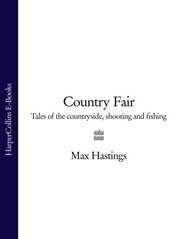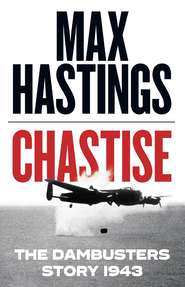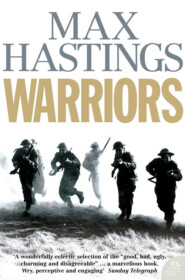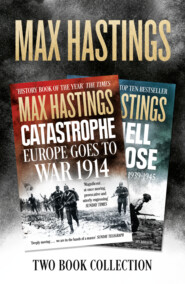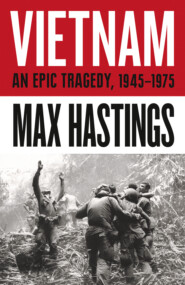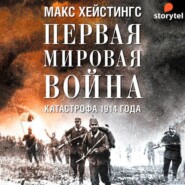По всем вопросам обращайтесь на: info@litportal.ru
(©) 2003-2025.
✖
Did You Really Shoot the Television?: A Family Fable
Настройки чтения
Размер шрифта
Высота строк
Поля
Having secured Marigold’s hand and fortune, and thereafter produced two children with her, Lewis resumed his old roaming habits. He acquired a tobacco farm in Southern Rhodesia, and spent many of the interwar years there, leaving his offspring and often his wife to amuse themselves as they saw fit. He published a slim volume of poetry, became first president of the Tobacco-Growers’ Association, a member of the Rhodesian parliament and eventually of its cabinet, and indulged a lifestyle that would have commanded the respect of Kenya’s Happy Valley set. The novelist Doris Lessing, who grew up in Rhodesia, encountered Lewis when she was a gawky teenage girl. In her memoirs she left a pen-portrait of him, as MP for Lomagundi in the 1930s, which has always delighted me.
He was famous for his oratory. He was famous for his love affairs, possibly because he wrote poems not unlike Rupert Brooke’s, and a good many were love poems. Very handsome he was, like a lion. He was a dandy, with a suggestion of military swagger, but this was used for dramatic effect. He would stand at ease on his box platform and entertain the farmers and their wives and their children with speeches…garnished with Latin and Greek. The crowd stood about in the red dust, the men in their khaki, the women in their best dresses, the children behind him on the verandah, while the ox wagons went groaning past on their way to the railway tracks, and Major Hastings said – he was talking about Native Policy, but don’t imagine that he disapproved, ‘Volenti non fit injuria – which means, as of course you all know, “No harm is done to him who consents.”’ And everyone laughed…Major Hastings loved his audiences too much to despise them…[He] did it all with just a touch of parody, his smile inviting us all to share with him his style, his bravura. How could wives not fall in love with him? Not to mention daughters. There are men who – with not so much as one second’s impropriety, with no more than a look – perhaps without even intending it, promise a half-grown girl that one day she, too, will be a member of the freemasonry of love.
Lewis blew into London at irregular intervals, towering over the bar of the Savage Club as he captivated Mac with his tales of shooting elephant and lion, of camps in the bush under the stars. A passionate nationalist, pillar of the Empire Society, he foresaw a splendid future for East and Southern Africa, producing food for Britain – this, though his own agricultural ventures in Rhodesia were wholly unprofitable. Lewis’s personal behaviour, not least towards the wife whom he exploited without scruple, may not deserve admiration. The violence of his enthusiasms and enmities could alarm more temperate folk. But he was no line-shooter. He lived as he talked – physically fearless and bent upon draining every cup to the dregs. His son Stephen, who found it hard to relate to him, wrote: ‘He strode in and out of our lives like a whirlwind. As well as weaver birds’ nests he brought exhilaration, suspense and uncertainty. His was a life of stirring and haphazard adventure.’ In Rhodesia in 1973, I met an old Afrikaner who had farmed next door to Lewis forty years earlier. ‘Ach, I never forget Major Hastings,’ he said, in the inimitable accents of the veldt. ‘I used to see him go out to hunt in the morning with his rifle, wearing only a cartridge belt and tennis shoes. He said he felt closer to nature that way.’
By courtesy of Marigold’s money, in England Lewis was able to hunt, fish salmon, shoot pheasants and inhabit country houses appropriate to his acquired status as a country gentleman. His writings and later broadcasting made him modestly well known, but I doubt whether his earnings would have paid his cook’s salary. Lewis didn’t care. He believed that life was for living. Mac spent time with him whenever he could. In 1933 they drove to Germany together, to take a first-hand look at Nazism. Irked by hearing constant renditions of ‘The Horst Wessel Song’, at the famous Femina nightclub in Berlin Lewis insisted upon leading a rousing chorus first of the Cape Mounted Police song, then of ‘The Red Flag’, to the stunned horror of Brownshirts in the audience.
I still possess his heavily annotated copy of the English edition of Hitler’s Mein Kampf. Lewis did not doubt for a moment that it would soon be necessary to fight Hitler. Although approaching sixty in the 1930s, he looked forward eagerly to a second round with the Hun. Meanwhile, Africa remained his happy hunting ground, its peoples his favourite companions. He wrote: ‘When I think of the African it is not as a kind of raw material for sociological experiment, but instead as clear-cut individuals, like Chidota my devoted and ruthless camp boss; Mafuta the dandy; Chiunda the tracker, and my old fighting Swazi and superb ox-driver Hendrik. I remember their separate ways and tricks and quite unquenchable laughter.’
In Rhodesia he kept a cheetah about the house: ‘Zunzu was often a bit of a trial to human visitors. To have a great animal suddenly leap in through the bathroom window was a test of character.’ One overnight guest objected strongly to discovering on awakening what he described as ‘a tiger sitting in my suitcase’. Lewis read a great deal, especially poetry. But he believed that excessive attention to intellectual pursuits dulled the physical senses, which grew more intense if denied books and newspapers. ‘You hear more – you see more things, you see more of them and you see further. That heightened sensibility to external impressions which shepherds have, and gamekeepers and gardeners and hunters – that’s one of the chief rewards. Awareness of movement and growth and seasonable signs, of footprints in the dust, of wind and the stars – these are the things that are blunted by books.’
Although nominally farming in Rhodesia, Lewis contrived to spend many weeks hunting in Mozambique and the Okavango Delta in Bechuanaland, as well as shooting lion and leopard closer to home. For years he was accompanied by his camp boss, Mafuta, a wartime veteran of the King’s African Rifles, ‘who could throw as pretty a salute as any Grenadier. If I hadn’t gone out with my gun-bearer at first light, Mafuta would materialise somehow out of the bush, stand rigidly at attention and deliver himself in his official voice somewhat as follows: “Good morning, n’kosi. Klass has cleaned the shotgun and gone out to get some guinea fowl. The elephants went over the river into the reed-bed last night. The n’tombi has come from the village with some eggs. A hyena has come in the night and taken a buffalo hide. The sugar is finished.” So there you were – all the real news in headlines. But Mafuta always put the good news first and the bad last, which is a much better idea than the one current in Fleet Street.’
One day when Lewis was out on a long trek, at evening he went out alone with a shotgun, in search of an antelope for the pot. After walking for some time, there was a sudden eruption in the bush in front of him. A bushbuck sprang out, he took a long-range snap shot, and was delighted to see the beast drop, apparently stone dead. Leaning his gun against a tree, Lewis walked forward to collect the carcass.
The moment I bent down to handle him, he came to life. I threw myself down, and grabbed him by the throat. The next second his razor-sharp hooves cut clean through my belt, just missing the skin. Many and many a time I had handled calves for branding, but this thing was like a bundle of steel springs. I twisted my legs round him and bore down as hard as I could. My weight at that time was 190 pounds, the bushbuck’s no more than ninety, but it took everything I had to hang on and prevent his hooves ripping me in pieces. At last I managed to shift my grip from the throat to his horns, and with that additional leverage I wriggled him round underneath me until I could reach my knife, and open it with my teeth. All this time the buck was blowing foam in my face, his tongue was lolling out of the corner of his mouth, and he was making the fiercest kind of ram noises. But I got him where I wanted him in the end, drove the knife in and cut his windpipe. For quite some little time I sat down after this struggle covered with blood, mostly the buck’s. Then I tore my tattered shirt into strips, and fastened the antelope’s legs together. I draped the heavy body over my shoulders and started back for the camp. The buck seemed a great deal more than ninety pounds by the time I got there.
At their best, Lewis’s descriptions of his life in the bush achieved a lyricism not unworthy of being compared with those of Karen Blixen or Robert Ruark: ‘The dawn breaks on the wide plain of tawny grass and the scattered clumps of tall ivory palm. It is the air and light and visible world of the First Day, virginal and unblemished…Far ahead of you there are some glittering motes of light that suddenly resolve themselves into a group of impala, most beautiful of all antelope. At long range they dance like snowflakes and are almost as effervescent.’ Mac was intensely impressionable, and Lewis conveyed to his nephew a sense of the romance of Africa which never faded. Less usefully, he also imbued him with some of his own contempt for the practical issues of life, solvency among them. Lewis’s values were those of Buchan and Sapper, which were starting to seem dated even in the 1930s. He never made the most of his considerable talents, because chronic restlessness caused him to go walkabout before finishing anything he started.
The most notable influence on Mac’s life, in the last phase before war came, was a woman. He struck up a friendship with a successful gentleman dentist named Bertie Pallant, who continued to practise despite having a country estate and considerable fortune. Bertie eventually squandered his money in a series of increasingly fanciful investments, but in those days plenty of cash remained. His rural acres lay in Sussex, south of Haslemere, and he was a keen shooter and fisher. Mac yearned to adopt these pursuits, but lacked experience, opportunities and cash. Now he began to edge into the rural world, and to explore a path to its pleasures. In 1938, for £50 he rented a cottage and rough shooting rights in Vernley Wood, a few miles from the Pallants’ place, and acquired an uncontrollable black spaniel which he christened Ruins, because the puppy was born in the old castle at Cowdray. A keeper looked after the dog while Mac was off earning a living.
Bertie Pallant had a smart, stunningly beautiful wife named Ruth, possessed of infinite Irish charm and considerable Irish recklessness. She and Mac embarked upon an affair which persisted for some years. Bertie was apparently acquiescent, for the three often went shooting and fishing together. Ruth sized up Mac, and decided that his years working at Lyons had given him some sorely mistaken ideas about what constituted the high life. She set about purging his vulgarities, and transforming him into a gentleman. With the aid of Savile Row and Ruth’s generosity, his wardrobe dramatically improved. He acquired his first made-to-measure shotgun, along with an impressive array of sporting impedimenta. He discovered that the Trocadero did not, as he had supposed, represent the summit of sophistication. Years later Ruth, who became my godmother, told me without embarrassment that she regarded herself as the architect of the new-model Macdonald Hastings. The phrase ‘make-over’ had not then been invented, but that is what she imposed upon Mac. It had only one unfortunate consequence. Forever afterwards, he sustained a style of living without much attempt to reconcile this with his income. Ruth turned Mac into a dashing country-gentleman-about-town, lacking acres and cash to support his enthusiasms. This would lead to many tears before bedtime, mostly shed by Mac’s wives.
Yet his career was taking off. In December 1938, a few months before the outbreak of war, he achieved the highest ambition of many of his generation of journalists: at the age of twenty-nine, he was given a job on the new weekly magazine sensation, Picture Post. Created and edited by the Hungarian Jewish refugee Stefan Lorant, it burst upon Britain with a force only matched, a decade later, by the coming of television. Indeed, with its bold use of live-action photographs, its elevation of the 35mm Leica camera to an instrument of magic arts, it represented the last old-media print revolution before moving images seized the ascendant. Picture Post became the most thrilling workplace in British journalism, and Father one of its stars.
Mac had a fine visual sense, as well as natural skill as a wordsmith. Far from being uncomfortable about working in close partnership with a photographer, he adapted readily to the discipline. At the outset, he specialised in country topics. Then as now, journalists were an overwhelmingly urban breed, knowing little about rural life. This offered notable opportunities to a writer stricken with a romantic enthusiasm for the English countryside, such as Mac. There were more people who wanted to read about rural life than there were journalists capable of satisfying the demand. Political correctness being unheard of, Mac contributed big pieces to early issues of Picture Post on pheasant-shooting, badger-digging and otterhunting, as well as British farming, the life of a tramp, the work of vets. When King George VI paid a state visit to Canada, Mac was given a wonderfully glamorous transatlantic assignment. With a photographer he travelled to New York on the Queen Mary, recording the passage, then wrote two features on the city before travelling north into Canada. The King and Queen had just crossed the continent on the Canadian Pacific Railway. Mac was sent to trace the same journey, and describe what the King saw.
Afterwards, he travelled to the far north to write about life in the Yukon, visited a logging camp in British Columbia and the wheat prairies of Alberta, before catching the boat back to England. Back home, he persuaded the magazine to let him do a feature about buying a pair of handmade shotguns from Robert Churchill – though I doubt whether the £240 which he paid for them was chargeable to expenses. By the autumn of 1939, still just short of thirty, he had established himself as one of the young stars of Picture Post. The fears and sorrows of his teens were behind him. Journalism is more generous than any other career to successful young practitioners, offering not only a living, but almost unlimited opportunities for fun and adventure. Avidly, Mac set about exploring them.
FIVE Anne (#ulink_7a5c5cb1-f216-5a22-8e3a-fb137b9e0e70)
My mother disliked her own family considerably. No photographs of them were visible in any house in which we later lived. She spoke dismissively of their professional doings, and recalled with distaste the oppressive atmosphere in their home. Born in 1913, she was ‘frightened of my parents, and grew up too soon for Dr Spock. I caught the tail-end of the Victorian philosophy that parents were perfect, and children always in the wrong, a righteous target for round-the-clock criticism. This made me very shy in company.’ Her paternal grandfather was a Congregationalist minister, a heavy, bearded Victorian, named Rev. John Scott-James, who presided over a church in Stratford-on-Avon and somehow contrived to educate eight children with the aid of scholarships. One such enabled my own grandfather, Rolfe, born in 1880, to attend Mill Hill school and then read classics at Brasenose, Oxford. Most of his sisters spent their later lives as spinster teachers in far-flung corners of the world. One, like her Hastings contemporary, became a nun.
Вы ознакомились с фрагментом книги.
Приобретайте полный текст книги у нашего партнера:
Приобретайте полный текст книги у нашего партнера:







